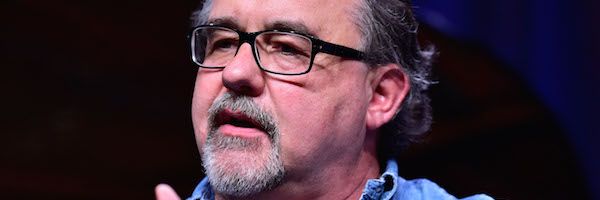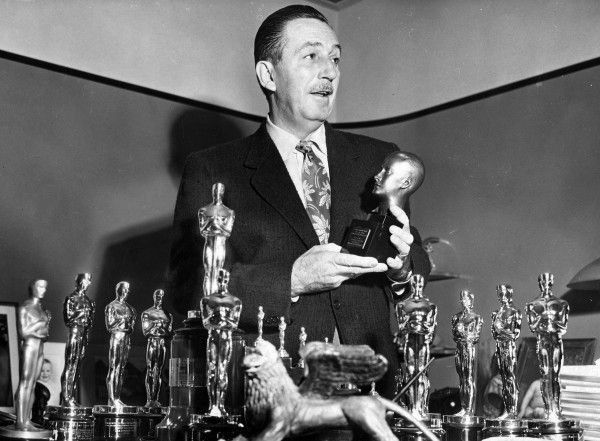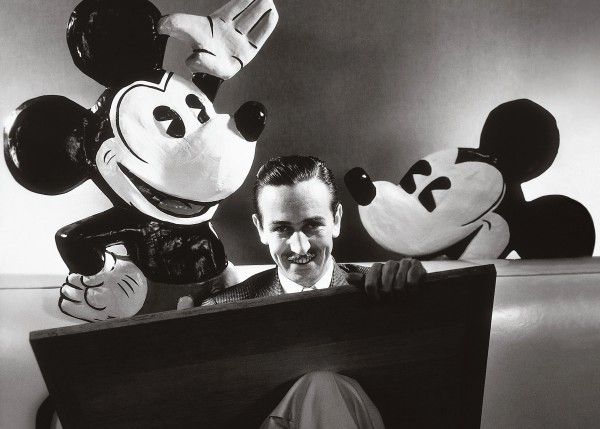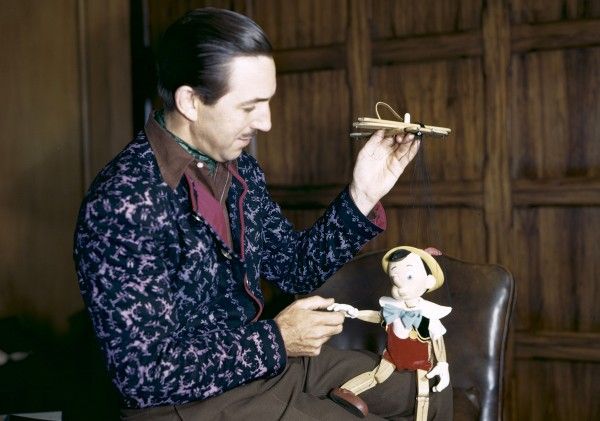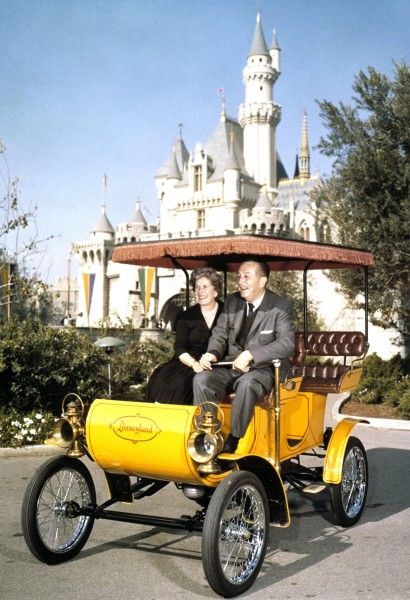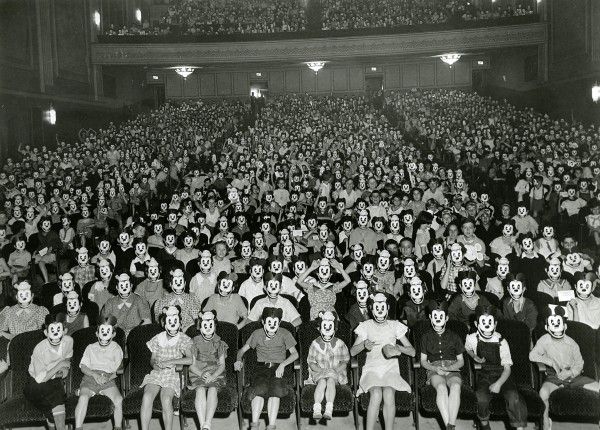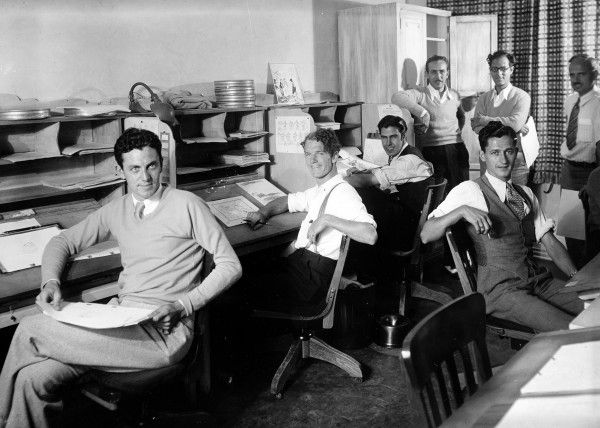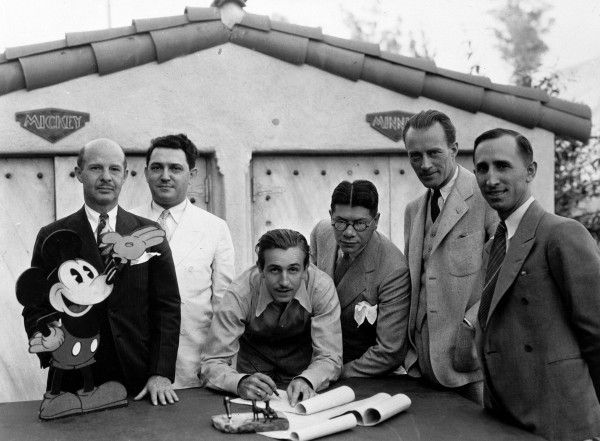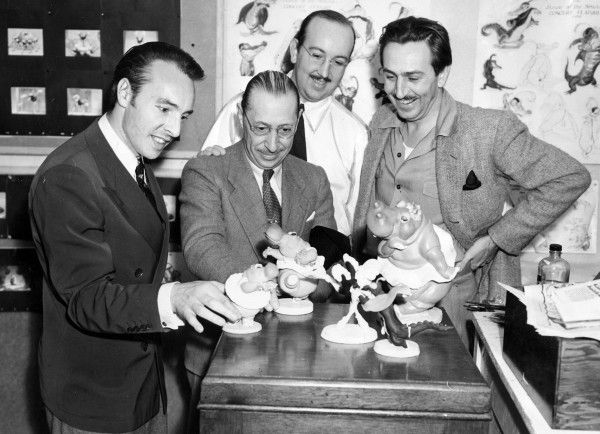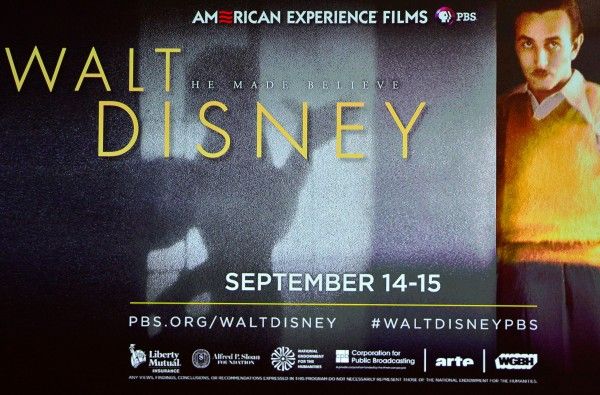Airing on PBS, the two-part four-hour documentary American Experience: Walt Disney offers an unprecedented look at the life and legacy of one of America’s most enduring and influential storytellers. While highlighting some of the ups and downs of his tremendously successful career, the film features rare archival footage from the Disney vaults, scenes from some of his greatest films, and interviews with biographers, historians, animators and artists who worked on the early films, as well as designers who helped create Disneyland. It is a fascinating and compelling look into an entrepreneurial and cultural icon who was both a demanding perfectionist and a man who just wanted to make people happy through the stories he told.
During this exclusive interview with Collider, producer Don Hahn (who is featured in the film) talked about why it’s important to humanize Walt Disney, what it means to him to have had a hand in producing so many Disney feature films over the years, how daunting it was to bring Maleficent to life in live-action form, how they’ll approach the sequel, why it’s time to reinvent Beauty and the Beast again, whether he worries that people will get burnt out on fairy tale movies, what it was like for him to experience Disneyland as a kind, and why he thinks people stay so loyal and dedicated to the Disney company.
Collider: People tend to only think about the Disney magic, but this documentary shows the good and bad sides to Walt Disney. Do you think it’s important for people to remember that there is a human being behind the Disney name?
DON HAHN: I think it’s really important, just like we might want to do the same with politicians or Steve Jobs. You want to be able to say these people are human beings that come up against the same odds that we all do, and somehow, in their own way, they’re able to bring their persistence and expertise to what they do, and Walt sure did. He had huge obstacles, financial, social, economic, and you name it, but his optimism pushed him through. He was a task-master. I think he was probably challenging to work with, at times, but he also loved what he did and he had this strong sense of vision for what he wanted to do. He was also constantly reinventing himself. How inspiring is that? When you look at his story, you go, “Maybe I need to push myself a little harder. Maybe I need to reinvent myself a little bit.” That’s why I love this story, warts and all.
Not too many people can want to build a theme park, and then actually get it done.
HAHN: And he didn’t have the money for it. It wasn’t like he was sitting on all that cash. It wasn’t that. Nobody knew what a theme park was. It’s incredible. I’m really conservative when it comes to money. I don’t think it crossed his mind. His mind did not operate that way. Money was just a vehicle to get what he wanted, and it didn’t stop his from starting something. He was like, “I’m going to make Mary Poppins,” but he didn’t even have the rights to it. He started to develop it and write songs for it, but he didn’t have the rights. P.L. Travers had a month to decide and call them back and say, “Yes, you can do it,” or “No, you can’t,” and she ultimately said yes, but for a month, they had it written, they had a script, they had all the songs, and they were waiting. But, what a spirit. He was also able to be an artist of his times and draw from that. He made films and theme parks based on the local culture and this idealistic view of America.
Do you think Walt Disney would have grown and changed with the times?
HAHN: It’s hard to say, but if you look just at the record and the films, he was so willing to change things, based on what was a good story. It was all about the story, and not necessarily what people might think or the political correctness of things. Go read the original Pinocchio sometime, and then look at the movie, or go look at Jungle Book, and then read Kipling. The spirit is identical, but the way it’s handled is so typically Walt Disney. He was pretty fearless about that, and people were happy to support him.
In this documentary, you talk about how there’s a generation that was traumatized by Bambi, even though it was fearless filmmaking. Do you think a movie like that could ever even get made today?
HAHN: Maybe on an independent level. I think those first five movies, especially, were very out there and they were adult. Not adult movies in the X-rated sense, but adult in terms of mature. They played for the whole audience. They played for kids, too, but they dealt with mature topics, like abandonment, growing up, death, life and birth. There was a fearlessness to that era that continued with Walt’s work later, in television and theme parks. That was quite an exceptional time, in the ‘30s.
What does it mean to you to have had a hand in producing so many of these Disney movies?
HAHN: It’s humbling. I’ve always admired people like Walt Disney and Jim Henson, and either creative producers. Jim Henson was a huge guy in my life. And then, I got to work for [Wolfgang] Reitherman, who did Jungle Book and 101 Dalmations, and he was a real role model for me. I’m a producer, I’m putting together teams of people, and I’m telling a story, but I’m no Walt Disney. What it gives me an appreciation for is how he did it and the energy that he must have brought to it while he was doing other things, at the same time. When I’m producing a movie, I can hardly tread water fast enough. It’s all-encompassing, and every moment is taken up with that movie. Walt was a guy who was tremendously passionate, but also able to shift gears and go off and do government films about flush riveting, and then come back and do Alice in Wonderland. He had real diversity throughout his career, and that’s really inspiring to me. It’s actually where I am in my life now. I’m trying to find the other chapters of Don, just as he did. It’s very inspiring and very humbling.
How daunting was it to take on something like Maleficent when people didn’t really know if you could take a character like that from animation to live-action and get people to connect with it? Did it feel as risky as it must have been?
HAHN: Yes. Linda Woolverton, the writer, and Angelina [Jolie], who I have to say was as involved, wanted to do something that was totally in the spirit of Sleeping Beauty and totally for the fans of Sleeping Beauty, but appropriate for the age we live in. There was no fear about that. There might have been fear about how we’d execute it. And that was 100% from Walt Disney. He didn’t want to do Bambi literally from the book. It was originally bought as a live-action movie at some other studio, and he’d always wanted the rights, but he wanted to do his own version of it and make it appropriate for him, as an artist. I think the key to all this stuff is that you have to be yourself. He was Walt Disney, and I’m who I am. In the case of Maleficent, Linda and Angie, especially, had a strong vision for the story. That makes my job easy ‘cause I can cheerlead and go, “Yeah, you’re right. Let’s go!” It was a real Walt Disney idea that you could mess with fairy tales. In fact, it’s our obligation to mess with fairy tales because we’re people that are alive now. I don’t know what 1955 was like.
Are you nervous about building on that for a sequel?
HAHN: It’s too early to talk about, but with any movie, you have to make it its own thing. What do you do after Toy Story? What do you do when you take The Lion King to Broadway? When we were making The Lion King, we used to laugh our butts off saying, “This would be a great ice show, or this would be great on Broadway.” Of course it is, but then, we never thought about who could possibly put it on stage. I think that unexpected leap of faith, when you go into another medium, or a sequel, or another story with those same characters, you have to be as bold about telling those stories as you were on the first one.
Are you taking the same approach with the live-action Beauty and the Beast?
HAHN: Beauty is 25 years old next year, so it’s ripe for reinvention, and the Broadway version reinvented it. Bill Condon is pretty brilliant, and the cast that he put together is amazing. It’s an odd place for me because I feel like it’s very important to reinvent it. Intellectually, I know that. And then, on the other hand, it’s my baby. But, I would never want to go see that. If you want to see the exact same film, put in the original film. I’m excited about it. I’m excited because reinvention is not only what Hollywood lives on, but it’s what we live on, as human beings. Walt Disney was the ultimate storyteller. Through it all, he let stories carry the day. His stories drove his whole life, including the character of Walt that he created. So, it’s about reinvention and about doing it in a fresh way.
What do you think will most surprise people about this version of Beauty and the Beast?
HAHN: Oh, I don’t know. It’s too soon to tell. It’s too early. Ask me in March of 2017.
There have been a number of announcements about Disney animated features being turned into live-action movies. Do you worry that people will get burnt out on that, or do you think there will always be a hunger for those old Disney stories?
HAHN: The honest answer is that, yeah, I worry about it, but it’s like the fashion business. Superheroes were fantastic. They’re still around. I think fairy tales in live-action will still be around. But yeah, the audience will eventually go, “Okay, I’ve seen 20 of those. I’m ready to move on to something else.” That happened with hand-drawn animation. The technology has moved on, but it’s still a very viable art form. Same with stop-motion animation. We made Frankenweenie a couple of years ago, and I loved it. That’s Tim [Burton], and it’s about narrative and storytelling, but people even get tired of Tim’s movies. I think history will show that he’s an auteur who’s crazy good at what he does. So, will people get tired of fairy tales? Yeah, especially if they’re not good. If they start to be weak or derivative and they start to feel like a cash grab, I don’t want to be a part of those. But if they feel like they’re sincere and they’re from the heart, and that there’s a legitimate story to tell that has to be told, that’s worth doing.
As a fan, is there one that you’re most excited to see go from animation to live-action?
HAHN: This sounds like a plug, but I’m really interested in Jon Favreau’s Jungle Book. I’m not a Disney employee or anything, so I have no reason to plug it, but I think his smarts put against what CG can do nowadays put against that story could be interesting. It’s not a fairy tale, but it’s very much a Disney movie. I just think that’s really going to be interesting and pretty cool. It’s very brave and very much out-of-the-box. It’s not a Marvel character. It’s not a Pixar movie. It’s going to have power to it, I’m sure, because that’s who he is, as a director. A film like that gets me excited, very much.
Is there one that you hope never makes that transition?
HAHN: I question movies like Bambi or The Lion King. Would you ever do live-action Bambi? Well, you could nowadays with animation and brilliant nature photography. I did a bunch of Disneynature movies and the people who do those movies are extraordinary, but can you do that? Would you want to do that? Would anybody care, if you did that? To be clear, we’re not talking about that, at all. I’ve never had a meeting with anybody on that. But those are the kinds of things where you go, “How far could we go with this?” But, I never thought you could do Jurassic Park with CG dinosaurs. I never thought you could do a CG animated film like Toy Story. I never thought you could do Jungle Book with CG characters.
And no one ever thought a movie like Who Framed Roger Rabbit could be made, before it was, and that it would look as good as it did.
HAHN: We had so much flop sweat when we were making that movie, for all the reasons you’re saying. That is a great example. We had [Robert] Zemeckis, who I think is brilliant and who has taught me pretty much everything I know, at the helm, telling this wacky story about the dismantling of public transportation in Los Angeles by a ‘toon. That’s the plot. I think that was a really brave film. Not on my part because we were just trying to execute what Bob wanted. But that’s a great example of taking something that’s a book and turning it into the state of the art technology with a story at the center of it all.
Do you remember what it was like the first time you went to Disneyland and the impression that made on you?
HAHN: Yeah. I grew up in Southern California and we didn’t have a lot of money in our family, but it was enough to save up and go a couple times a year. I would pick out the shirt weeks in advance because it would be the lucky shirt that got to go, and the lucky underwear. We would go at the beginning of the day and stay as long as we possibly could because we knew we wouldn’t get back there for a long time. I knew where everything was because I had studied the map beforehand. I don’t feel like I was ever a fan of Disney, which is weird, because you think I would be, but I just loved it for what it was, at face value. I could go fire a rifle in Frontierland, or ride a bobsled up a mountain. That fantasy was really great for me, and it really affected me.
A lot of the Sunday night movies where they showed them building Pirates of the Caribbean, and they were there with blow torches ripping sails on a pirate ship, made me go, “Wow, people do that for a living?! That’s crazy!” I think I was a pretty creative kid in a pretty conservative world, so to see that people could actually live their life and that there were other members of my tribe, meaning stupid creative people, and that I could join their tribe really affected me. My family was great and I loved them, but I was different. And then, when I got to work at Disney, I was 20 and I said, “Wow, these are my people. I get these people. I get everything about them, and their neuroses, their introversion, their extroversion, their willingness to take risks, their stupidity, and their great costumes at Halloween.” I got all of that. You do feel like you’re a part of a tribe or family.
I produced the Haunted Mansion movie with Eddie Murphy and we went and toured the Haunted Mansion. We turned the lights on and walked the whole ride, and it’s really interesting because – and this will sound wrong – it’s surprisingly cheap in its execution and construction materials with the lights on. You go, “Oh, this is funny.” The power of imagination and knowing what to put on or leave out is another Walt Disney trait. You don’t have to put every highlight on every eyelash. What’s not there is as cool and as important as what is there. That’s why things like Bambi’s mother getting shot and there just being the words, “You’re mother can’t be with you anymore,” is devastating. We watched that hundreds of times when we were making The Lion King, for how you do a scene like that.
Everyone who gets involved with Disney, in whatever way, seems to want to keep the Disney magic going, however they can.
HAHN: It’s different. It’s not like the other studios, in good and bad. There’s nothing evil about the other studios, at all. Walt was really an outsider. As much as he wanted to win a Best Picture Oscar for Snow White, he didn’t. He got a kids at the card table gift, which was lovely and wonderful. It’s never really bothered me that much that animation hasn’t gotten a Best Picture award. Beauty and the Beast got nominated, which is fantastic, but the really cool thing is to sit in the back of an audience and watch a movie with them and hear them laugh. It sounds so corny, but that’s the big award. That’s so great.
Can you have just as much fun going to watch animated movies, now that you’re so involved in the process? Do you still enjoy them the same way?
HAHN: No. I’m just being truthful, but I don’t. I admire them, like when I see a good Miyazaki movie. I saw Roger Allers new movie The Prophet, and I really admire that for what it is. But, I know too much about the technique and the suffering that goes into those movies. It’s hard. On Frankenweenie, people would come by and tour the set and be like, “So how much can you do in a week?” And you’d go, “Well, we can do about five seconds in a week.” And they’d be like, “No, really, how much?” So, I have a huge appreciation, as opposed to having fun. Although there certainly are movies where you just go and have a good time. I think Inside Out was a great movie. That should be a Best Picture nominee this year. And The Minions movie was really stupid fun.
What do you think it is about the Disney name that keeps people so dedicated?
HAHN: It’s hard because I’m not there on a daily basis anymore. I’m an independent producer now. I still have projects there, but producers in the industry, as a whole, are independent. But they’ve been very, very kind to me. I think it has to do with Disney getting under our skin, as a child. There are aspirational characters, be they princesses or Marvel characters or Star Wars characters, that we aspire to be like. Also, we learn our mythology and our life lessons, a lot of times, from movies in general, and from Disney movies in specific. The role of the shaman, the role of the wise man around the fireplace, the role of the church, in some instances, and the role of the government has been taken over by storytelling in film. That’s not to say there’s a political message or that it’s preaching, but learning the fundamentals of what it means to be a human comes from a lot of these movies. Most of our movies are about what it means to grow up. You’re discovering, through the course of a movie, how it feels to be a character who’s 16 and falling in love, or a character who’s older and just lost their wife, in the first five minutes of the movie, and is now flying on a balloon to South America.
Walt Disney, at his best, is telling you what it is to be human. He’s telling you that this is what it’s like to have to kill your dog, or to be a guy who wants a son and he gets one, but it’s in an unexpected way because he’s a wooden boy. That’s pretty cool. That has a position in culture that nothing else does. A painting doesn’t. A sculpture doesn’t. Many live-action movies don’t, but some do. I think that’s why Disney has such a crucial role in our lives. It’s more than just a movie. Whether you agree with it or not, we’re learning a little bit about ethics and aesthetics. Your position might be that you hate it and that it’s cornball and awful, but that’s still a legitimate lesson to look at. It’s just putting something out for consideration that says, “This is what I think it means to be human,” and that’s what Walt Disney did.
American Experience: Walt Disney airs on PBS on September 14th and 15th.

